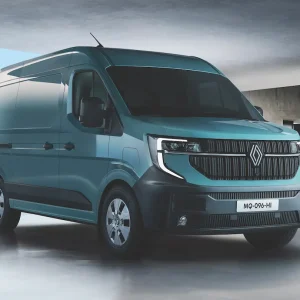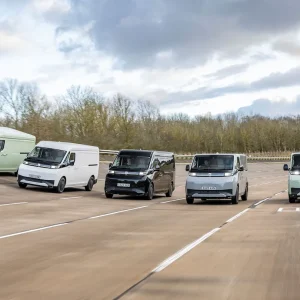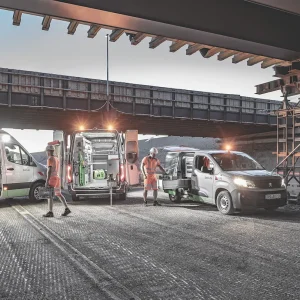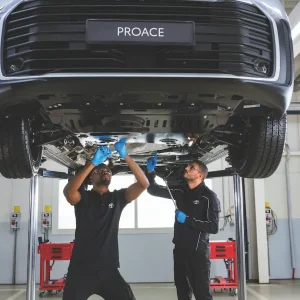Emerald Automotive is to bring an ultra-low emissions, lightweight delivery van to market, following a project co-funded by the public money from the Technology Strategy Board as part of its Low Carbon Vehicles Innovation Platform.
The t-001 is targeted at leading blue-chip companies running fleets of at least 40,000 vans. Emerald boss Andy Tempest says the development team started without any preconceived ideas but asked fleet managers what they wanted from a 3.5-tonne delivery van. The most important requirements were economy with no impact on payload capacity plus the elimination of the range anxiety that inevitably dogs pure electric vehicles.
Emerald used a Ford Transit as the base donor vehicle while taking the 1.4-litre diesel from the Fiesta and adding range-extender technology.
The rear-wheel drive van features an aluminium chassis, space-frame cab structure and lightweight composite body panels. These techniques, more commonly found in motorsport, helped to preserve the van’s 1400kg payload and 5.2m3 load volume. Equally important, technical director Ian Collins insists the van will also pass the most stringent safety tests.
Two prototype Range-Extended Electric Vehicles (REEV), using lithium batteries and a 1.4 diesel engine range-extender, achieved CO2 emissions of 32g/km coupled with fuel consumption of 232mpg, but Emerald reckons these can be improved to 25g/km and 300mpg respectively by the time the van is set to go into production in 2014.
The batteries power the van for about 60 miles via a 75kW electric motor before the diesel engine kicks in, driving a 54kW generator, which recharges the batteries and provides current to the electric motor, stretching the vehicle’s range to 400 miles. The diesel engine does not power the wheels directly.
The van will have a price tag of about £32,000. Tempest says the firm needs sales of 4000 vans to break even and has a base business plan of producing 10,000 units a year (following first-year production of 5000), rising to 100,000. He reckons fleets are looking at a payback time of 22 months on their orders and cites average fuel savings of £7200 per vehicle a year.
“It will save them a fortune on fuel,” he says, and claims that over four years a big corporate fleet of at least 40,000 vehicles could slash £1bn off its fuel bill.
Emerald aims to make use of telematics in conjunction with the vehicle control unit (VCU) for route planning. For example, the system could be set up to switch to electric power when entering an emission-free zone, having conserved enough charge to do so during the journey beforehand.
Production will be based around a central manufacturing hub in St. Louis, Missouri, USA, but the firm insists it will set up a final assembly point in the UK and in other European markets. It adds that the UK is a prime market for the t-001 due to the likely proliferation of emission-free zones and the high cost of fuel.
On the road
We drove a REEV prototype and found that it was remarkably similar to driving a conventional, automatic van. Operators need have no fear that their employees, for whom driving is a part of the job, but not the job, will find the experience too disconcerting.
Our drive was undertaken entirely in electric mode, as could be seen from the traffic light-style display on the dashboard indicating the levels of charge in the electric and range-extender motors.
With instant torque on tap acceleration is brisk, but there is no sense of having stamped on the brake when you take your foot off the throttle, as is the case with the regeneration element of some electric vehicles.
Selecting the required gear is simple, with a choice of forward, neutral and reverse. The parking brake is applied with a conventional hand-operated lever.
Aside from the whir of the electric motor there was a fair amount of racket emanating from the unladen load bay, but Emerald assures us this will be resolved once sound-proofing is applied to the production van.
The cab is protected by a full bulkhead, which also helps to reduce heating energy. The heater will not draw energy from the battery but will be powered by the range extender.
The t-0001 has a top speed of 80mph. All in all there are few surprises, and that is probably its strongest selling point.





